Who’s running Zimbabwe’s government of national unity? Jason Moyo has a look at the key power players and attempts to unravel their tenuous hold on a complicated coalition

President Robert Mugabe
With his hand firmly on many of the political levers, Mugabe has still had to balance the need to keep his top supporters happy, while appearing keen on reform. When addressing supporters, he puts on a defiant act. And when timing demands, Mugabe warmly holds hands with Morgan Tsvangirai.
But the president has spent the past year plotting a path back to full power and his plays are becoming bolder.
Last month he sent out a memo to ministers ordering them to stop reporting to Tsvangirai; Tsvangirai wrote his own memo, telling ministers to reject Mugabe’s order.
Mugabe has skilfully steered debate away from reforms, bogging his opponents down in a debate about sanctions.
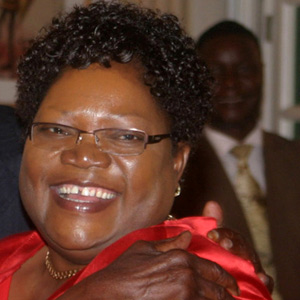
Vice President Joyce Mujuru
Mujuru, still known among her supporters by her war name Teurai Ropa (Spill Blood), has long been touted as a possible successor to Mugabe.
She was 25 years old when she became a Cabinet minister at independence in 1980. She rose to prominence when, as women’s affairs minister, she banned beauty pageants, saying they degraded women.
Her fortunes have see-sawed in the past six years. In 2004 she looked a dead certainty for higher office after Mugabe eased her into her current position by sacking six provincial party chairpeople.
But wary of Mujuru’s ambition, it was rival Emmerson Mnangagwa that Mugabe chose as a close confidant. Mujuru worked her way back to Mugabe’s side and her faction took control of key levers of Zanu-PF at its congress in December, where she cast herself as a reformer.
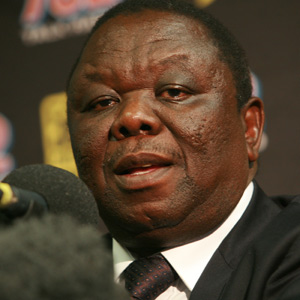
Prime Minister Morgan Tsvangirai
A former trade unionist, Tsvangirai still derives support largely from the urban poor. His participation in the unity government alienated some of his more radical backers, while his failure to press quickly for reform has disillusioned some unionists.
However, there are no real threats to his leadership of the 11-year-old MDC. While his support base remains grassroots, he also retains the critical support of big business and the international community, a lever he has over Mugabe.
Tsvangirai faced criticism that he allowed himself to be outplayed by Mugabe, a contention that grew last October when, in a rage, he announced his party was “disengaging” from the coalition.
Weeks later Tsvangirai was back in government and nothing really changed. He has refused to join mud-fights, even while Zanu-PF turned up the rhetoric against him.
His failure to convince Western allies to provide real economic aid to Zimbabwe has, however, left him vulnerable.
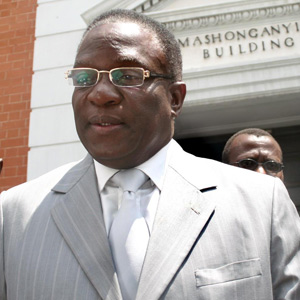
Defence Miniser Emmerson Mnangagwa
A head of a rival Zanu-PF faction, Mnangagwa has not had a very public role, but is deeply involved with his party’s team in interparty negotiations. He has publicly supported the military’s role in land reforms, while Zanu-PF has declared it will not negotiate reforms for the “sacred and sacrosanct” military.
Much feared, Mnangagwa has solid ties in the military and in intelligence, having served as security minister during the first years of the independence.
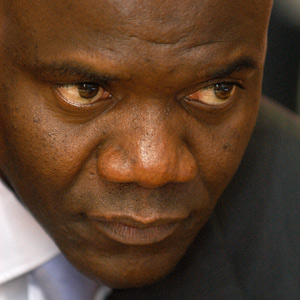
Deputy Prime Minister Arthur Mutambara
Mutambara remains an outsider in the coalition. His smaller faction of the MDC holds a deciding minority in Parliament, but neither of the two main rivals can rely on his support.
Mutambara has sought to cast himself as the middle-man between the two more dominant partners.
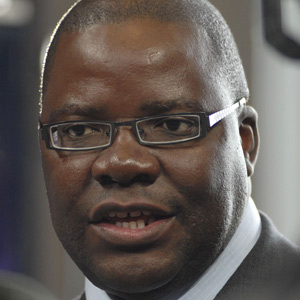
Finance Minister Tendai Biti
The unity agreement handed control of economic reform to the MDC, an acknowledgement of Mugabe’s failures. And Biti, the MDC’s secretary general, has revelled in the spotlight of economic success, seizing power from the country’s central bank governor Gideon Gono.
Biti waged endless public wars with Gono, which served to win him admiration, but only widened divisions within the coalition.
Revenues have risen steadily under Biti’s strict regime, inflation eased and Zimbabwe’s relations with international lenders are on the mend. But he has often appeared stranded and unsure.
Early in his job he drew criticism after he failed to state what policies he had planned to kick-start growth, saying he would have to go by “hook and crook”.
He also fumbled over the use of special International Monetary Fund money, drawing criticism from business.
Jonathan Moyo
The roar that greeted Jonathan Moyo as his name was called out at the Zanu-PF congress in December said much about how parched the party is for anything new. While nobody has mentioned his name as a candidate for top office, he is a talker and he is useful for observers looking to gauge the pulse of the hardliners within Zanu-PF.
Moyo was sacked from the party in 2005 and became as acerbic in his criticism of Mugabe as he had been in defending his rule as information minister.
Moyo gained infamy in a crusade against a free press, using his sharp wit as he shut down newspapers. None of it has worn off.
He claimed recently that “every Zimbabwean is Zanu-PF at heart” and in a typical article in a state weekly recently he brazenly claimed Zanu-PF’s policies had “done wonders in the economy”.
But Moyo can be depended on to reveal the anxiety of hardliners with reformists within the party, whom he says are “doubting Thomases” who are “flirting with the other side.”
Unity or a poll
There was a moment at Zanu-PF’s congress late last year when the party’s anxiety under the coalition was laid bare.
In a session discussing “the state of the party”, one supporter rose from the floor.
“Mr Chairman,” he shouted. “We have a problem. Where I live, when they come and fill in the potholes, the people say it is the MDC’s work. When water supply is restored, it’s the MDC. When they repair pipes, it is the MDC.”
It was a popular view — progress was hurting the party. And so by the end of congress, Zanu-PF had decided to toughen up. According to a poll by the Mass Public Opinion Institute, support for the unity government fell from 80% in March last year to 66% in December last year.
But many observers believe the unity government will survive. Collapse would trigger a fresh election and, despite the rhetoric, neither party is ready for a new poll.